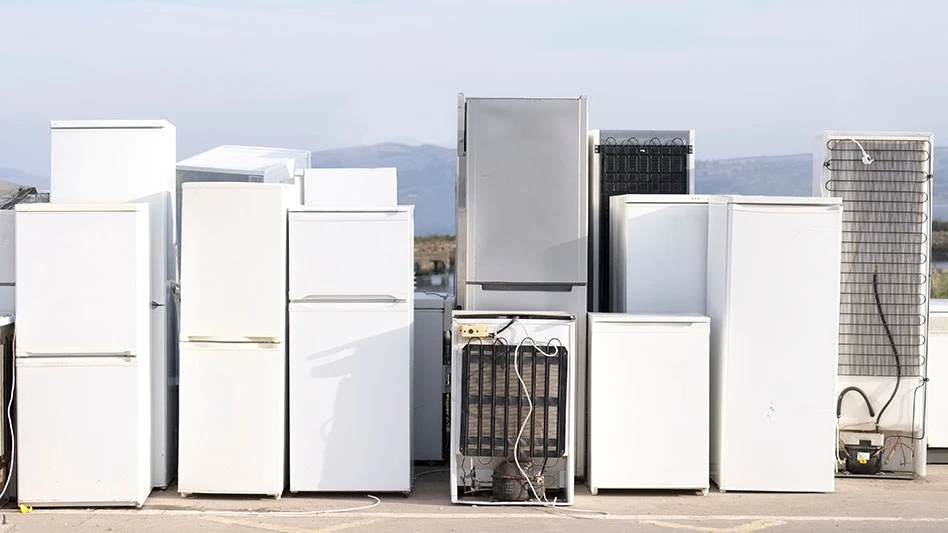
Richard Johnson | stock.adobe.com
The Netherlands-based European Electronics Recyclers Association (EERA), representing 42 international companies in more than 40 countries, is warning that the Jan. 1, 2025, implementation of the Basel Convention E-Waste Amendments and its adoption in the European Union and other neighboring governments will increase the costs of compliant treatment of temperature exchange equipment (TEE) from refrigerators.
This cost increase will inevitably need to be passed on to TEE producers and producer compliance schemes, EERA CEO Julie-Ann Adams writes in an open letter to TEE producers.
RELATED: Out of touch with reality
A majority of degassed fridge compressors removed during TEE recycling have been exported to Pakistan as nonhazardous waste under Basel Annex VII procedures, Adams notes. In Pakistan, compressors often are refurbished for reuse or dismantled manually to recover copper wire, resulting in higher material values compared with metal recycling options available within Europe.
However, under the Basel Convention E-Waste Amendments, starting Jan. 1, 2025, overseas shipments of segregated e-scrap components, which include fridge compressors, will require prior consent through a full notification process, Adams notes. Although properly depolluted fridge compressors can still be classified as nonhazardous, exporters must include detailed environmental permits and treatment documentation for receiving facilities in their pre-informed consent application.
Because Pakistan lacks licensed facilities to meet these requirements, this export route will no longer be viable, Adams writes.
The EERA urges TEE producers and compliance schemes to recognize these imminent changes and their financial implications. European TEE recyclers must identify recycling solutions within Europe, where material values are significantly lower than those achieved via export to Pakistan. This shift must be reflected in updated contractual agreements to ensure the continued compliant treatment of TEE, Adams adds.
Latest from Recycling Today
- BMW Group, Encory launch 'direct recycling’ of batteries
- Loom Carbon, RTI International partner to scale textile recycling technology
- Goodwill Industries of West Michigan, American Glass Mosaics partner to divert glass from landfill
- CARI forms federal advocacy partnership
- Monthly packaging papers shipments down in November
- STEEL Act aims to enhance trade enforcement to prevent dumping of steel in the US
- San Francisco schools introduce compostable lunch trays
- Aduro graduates from Shell GameChanger program





